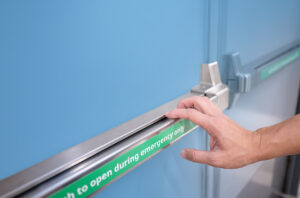Certain materials e.g. gasses, flammable liquids and solids, explosives, radioactive, toxic, corrosive or oxidising substances can be particularly hazardous and it is important that anyone using or handling these substances has received appropriate training so that they can do their work safely. This includes when the substances are being transported by road.
Driving is already a hazardous task, when dangerous substances are being transported the risks can increase exponentially. All drivers of vehicles carrying dangerous goods must attend a basic training course, so they are aware of the hazards and know what steps to take to reduce the chance of an incident occurring or to minimise the effects of an incident should one occur.
Typically the more of a substance the greater the risk, and above certain thresholds it is a legal requirement for drivers of vehicles carrying dangerous goods to hold a specific qualification known as an “ADR training certificate” (currently these are in a credit card type format).
There are different types of certificate depending on the type of dangerous goods being transported and how they are being carried e.g. whether or not a tanker is being used.
If you are looking to become a dangerous goods driver or are looking to arrange driver training for your information, it is important that you know what training is required and the rules regarding obtaining qualifications and staying qualified. The Driver and Vehicle Standards Agency recently published a new guide to becoming a qualified dangerous goods (ADR) vehicle driver. This can be found on the Gov.UK website at: https://www.gov.uk/become-dangerous-goods-driver
Please speak to your normal PIB Risk Management contact or get in touch using [email protected] if you have any questions.

HSE Inspections Find Serious Issues in Protecting Workers From Noise

Welcoming Our New Apprentices

Ensuring Safe Fire Doors

Fire Fighting Foam Chemical Consultation Launched

Clarifying Requirements for Fire Doors at Entrances to Flats
